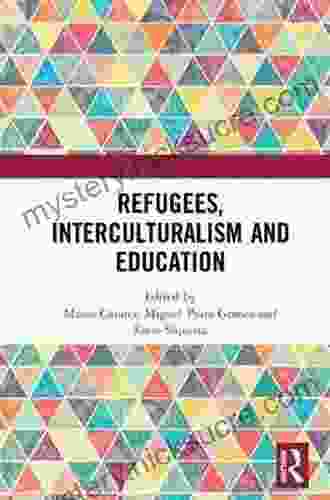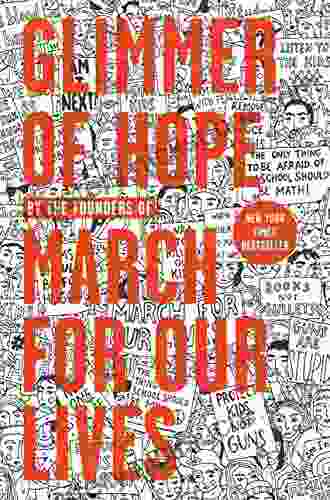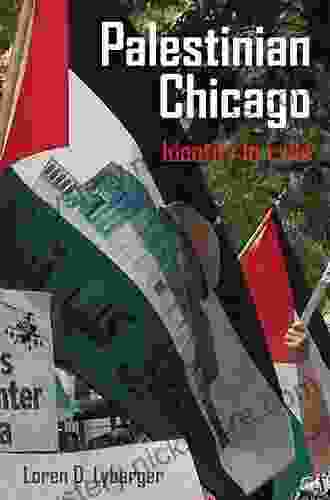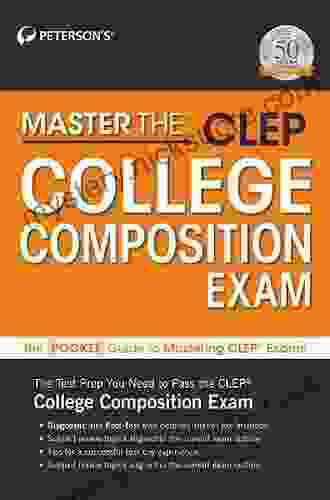Exploring the Role of Interculturalism and Education for Refugees: A Comprehensive Analysis

4.5 out of 5
| Language | : | English |
| File size | : | 3222 KB |
| Text-to-Speech | : | Enabled |
| Screen Reader | : | Supported |
| Enhanced typesetting | : | Enabled |
| Word Wise | : | Enabled |
| Print length | : | 185 pages |
The global refugee crisis has brought unprecedented challenges and opportunities to societies worldwide. As millions of refugees seek refuge in new countries, there is a pressing need to create inclusive and supportive environments that facilitate their integration and well-being. Education plays a crucial role in this process, as it provides refugees with the knowledge, skills, and intercultural competence necessary to navigate their new lives.
This article examines the complex relationship between refugees, interculturalism, and education. It explores the challenges and opportunities in fostering inclusive learning environments and promoting successful integration. By examining best practices and innovative approaches from around the world, this analysis aims to provide insights and recommendations for policymakers, educators, and community leaders who are working to support refugee students.
Challenges of Refugee Education
Refugee students face a multitude of challenges in accessing and succeeding in education. These challenges can be broadly categorized into three main areas:
1. Linguistic Barriers
Language barriers are one of the most significant obstacles for refugee students. Many refugees arrive in their new countries with limited or no knowledge of the local language, making it difficult for them to participate fully in classroom activities. This can lead to a lack of understanding of the curriculum, social isolation, and feelings of frustration.
2. Cultural Differences
Refugees often come from cultures that are vastly different from the cultures of their host countries. These differences can affect their expectations of education, their learning styles, and their interactions with teachers and classmates. For example, refugee students may be unfamiliar with the local educational system or may have different norms and values regarding gender roles or discipline.
3. Psychosocial Challenges
Refugees have often experienced traumatic events before and during their flight, which can have a significant impact on their emotional and psychological well-being. These challenges can make it difficult for refugee students to concentrate, participate in class, and build relationships with others. Additionally, refugees may be facing financial difficulties or family separation, which can further stress and anxiety.
Opportunities for Interculturalism in Education
Despite the challenges, refugee education also presents significant opportunities for interculturalism. By embracing the diversity that refugee students bring to the classroom, schools can create inclusive and vibrant learning environments that benefit all students.
1. Cultural Exchange and Understanding
Refugee students offer a unique opportunity for cultural exchange and understanding. By sharing their experiences, perspectives, and traditions, refugee students can help their classmates learn about different cultures and challenge stereotypes. This can foster empathy, tolerance, and respect for diversity.
2. Skills and Knowledge Transfer
Refugee students often bring valuable skills and knowledge to their new communities. They may have experience in different languages, cultures, or professions. By recognizing and utilizing these skills, schools can create a more inclusive and supportive environment for all students.
3. Enhanced Curriculum and Pedagogy
The presence of refugee students can challenge and enrich the curriculum and pedagogy of schools. By incorporating refugee experiences and perspectives into teaching, schools can make their curriculum more relevant and engaging for all students. Additionally, refugee students can help teachers develop more inclusive and culturally responsive teaching practices.
Best Practices for Supporting Refugee Education
Creating inclusive and supportive learning environments for refugee students requires a multi-pronged approach. The following best practices have been identified by researchers and practitioners:
1. Language Support
Providing comprehensive language support is essential for refugee students' success. This includes intensive language instruction, in-class support, and opportunities for language practice outside the classroom. Schools should also consider using multilingual teaching materials and providing translation services for parents and guardians.
2. Culturally Sensitive Teaching
Teachers need to be trained to understand and respond to the cultural diversity of refugee students. This includes creating a classroom environment that is welcoming and respectful of all cultures. Teachers should also be aware of the different learning styles and expectations that refugee students may have.
3. Psychosocial Support
Refugee students may need additional psychosocial support to cope with the challenges they face. This includes providing access to counseling services, mental health professionals, and peer support groups. Schools should also create a safe and supportive school climate where refugee students feel comfortable seeking help.
4. Community Involvement
Community involvement is crucial for the successful integration of refugee students. Schools should work closely with community organizations, cultural groups, and refugee service providers to provide wrap-around services for refugee students and their families. This can include transportation assistance, housing support, and access to healthcare.
The education of refugee students is a complex and multifaceted challenge. However, by embracing the opportunities for interculturalism and implementing best practices, schools can create inclusive and supportive learning environments that foster the success of refugee students and benefit all students.
As the global refugee crisis continues, it is more important than ever to invest in refugee education. By providing refugee students with the tools and support they need to succeed, we can help them rebuild their lives, contribute to their new communities, and create a more just and equitable world.
4.5 out of 5
| Language | : | English |
| File size | : | 3222 KB |
| Text-to-Speech | : | Enabled |
| Screen Reader | : | Supported |
| Enhanced typesetting | : | Enabled |
| Word Wise | : | Enabled |
| Print length | : | 185 pages |
Do you want to contribute by writing guest posts on this blog?
Please contact us and send us a resume of previous articles that you have written.
 Fiction
Fiction Non Fiction
Non Fiction Romance
Romance Mystery
Mystery Thriller
Thriller SciFi
SciFi Fantasy
Fantasy Horror
Horror Biography
Biography Selfhelp
Selfhelp Business
Business History
History Classics
Classics Poetry
Poetry Childrens
Childrens Young Adult
Young Adult Educational
Educational Cooking
Cooking Travel
Travel Lifestyle
Lifestyle Spirituality
Spirituality Health
Health Fitness
Fitness Technology
Technology Science
Science Arts
Arts Crafts
Crafts DIY
DIY Gardening
Gardening Petcare
Petcare Jonathan T Gilliam
Jonathan T Gilliam Robert Garland
Robert Garland Ruthellen Josselson
Ruthellen Josselson Chris Pountney
Chris Pountney Douglas P Fry
Douglas P Fry Carlos I Calle
Carlos I Calle Valliappa Lakshmanan
Valliappa Lakshmanan Craig Martelle
Craig Martelle Sue Elvis
Sue Elvis Ira K Wolf
Ira K Wolf Silvia Dunn
Silvia Dunn Dan Romanchik Kb6nu
Dan Romanchik Kb6nu Frederick Jackson Turner
Frederick Jackson Turner Richard Harding Davis
Richard Harding Davis Dennis Adler
Dennis Adler Martina Mcbride
Martina Mcbride Jim Kempton
Jim Kempton Leah Zani
Leah Zani Tom Cunliffe
Tom Cunliffe Byron L Reeder
Byron L Reeder Albert Rutherford
Albert Rutherford Lingo Mastery
Lingo Mastery James Beard
James Beard Marisa Peer
Marisa Peer Katherine D Kinzler
Katherine D Kinzler George Daniel
George Daniel Jessica Howard
Jessica Howard Shea Ernshaw
Shea Ernshaw Joyceen S Boyle
Joyceen S Boyle Mary C Townsend
Mary C Townsend Charles Staley
Charles Staley Emily Lowry
Emily Lowry Helen Webster
Helen Webster James W Anderson
James W Anderson Lily Raff Mccaulou
Lily Raff Mccaulou Heather Jacobson
Heather Jacobson Theodora Papatheodorou
Theodora Papatheodorou Terry Laughlin
Terry Laughlin Steven Kerry Brown
Steven Kerry Brown Elisabeth Elliot
Elisabeth Elliot Destiny S Harris
Destiny S Harris Ken Schwaber
Ken Schwaber Mary Pagones
Mary Pagones Nicola Yoon
Nicola Yoon Nick Gamis
Nick Gamis Michael Gurian
Michael Gurian Maren Stoffels
Maren Stoffels Jasmine Shao
Jasmine Shao Victoria Honeybourne
Victoria Honeybourne Hecateus Apuliensis
Hecateus Apuliensis Mona Bijjani
Mona Bijjani Leon Speroff
Leon Speroff Jack Disbrow Gunther
Jack Disbrow Gunther Maxine A Goldman
Maxine A Goldman Nigel Cawthorne
Nigel Cawthorne Jess J James
Jess J James Matt Racine
Matt Racine Jared Diamond
Jared Diamond Thomas Carothers
Thomas Carothers Wilhelm Reich
Wilhelm Reich Cameron Mcwhirter
Cameron Mcwhirter Ian Tuhovsky
Ian Tuhovsky Aaron Reed
Aaron Reed Lsat Unplugged
Lsat Unplugged Earl G Williams
Earl G Williams Elena Paige
Elena Paige Vivian Foster
Vivian Foster Greg W Prince
Greg W Prince Jeff Scheetz
Jeff Scheetz Tyler Burt
Tyler Burt Declan Lyons
Declan Lyons Sara Gaviria
Sara Gaviria Emily Writes
Emily Writes Jack Canfield
Jack Canfield Jim Warnock
Jim Warnock Sarah Prager
Sarah Prager Ken Sande
Ken Sande Katharine Mcgee
Katharine Mcgee Eric R Dodge
Eric R Dodge Chris Bonington
Chris Bonington Vincent Chidindu Asogwa
Vincent Chidindu Asogwa Dorothy Canfield Fisher
Dorothy Canfield Fisher Martha Finley
Martha Finley Winky Lewis
Winky Lewis Healthfit Publishing
Healthfit Publishing Samantha De Senna Fernandes
Samantha De Senna Fernandes William Ellet
William Ellet J D Williams
J D Williams Emt Basic Exam Prep Team
Emt Basic Exam Prep Team Philippe Karl
Philippe Karl Tricia Levenseller
Tricia Levenseller Jennifer Rose
Jennifer Rose Lisa Feldman Barrett
Lisa Feldman Barrett Don S Lemons
Don S Lemons Stedman Graham
Stedman Graham Ransom Riggs
Ransom Riggs Eugenia G Kelman
Eugenia G Kelman Natasha Daniels
Natasha Daniels Lee Alan Dugatkin
Lee Alan Dugatkin Jim Supica
Jim Supica Sonia Shah
Sonia Shah Thomas Daniels
Thomas Daniels Elizabeth Dupart
Elizabeth Dupart Michael A Tompkins
Michael A Tompkins Heather Balogh Rochfort
Heather Balogh Rochfort Kat Davis
Kat Davis Sylvia Williams Dabney
Sylvia Williams Dabney Bryce Carlson
Bryce Carlson Chad Eastham
Chad Eastham Stian Christophersen
Stian Christophersen Bunmi Laditan
Bunmi Laditan Natasha Ngan
Natasha Ngan Stephen Harrison
Stephen Harrison Frank Muir
Frank Muir Celeste Headlee
Celeste Headlee Kerry H Cheever
Kerry H Cheever Robert Moor
Robert Moor Edward Humes
Edward Humes Om Krishna Uprety
Om Krishna Uprety John Jamieson
John Jamieson Nicholas Tomalin
Nicholas Tomalin Simon Michael Prior
Simon Michael Prior Stella Cottrell
Stella Cottrell Ronit Irshai
Ronit Irshai Guy Grieve
Guy Grieve Huberta Wiertsema
Huberta Wiertsema Kendall Rose
Kendall Rose Carrie Hope Fletcher
Carrie Hope Fletcher Shmuel Goldberg
Shmuel Goldberg Paul Murdin
Paul Murdin Rebecca Musser
Rebecca Musser Larry Larsen
Larry Larsen Cornelia Pelzer Elwood
Cornelia Pelzer Elwood Stacey Rourke
Stacey Rourke Lucy Cooke
Lucy Cooke Max Lugavere
Max Lugavere K C Cole
K C Cole Ron Rapoport
Ron Rapoport Tony E Adams
Tony E Adams Roger J Davies
Roger J Davies Lois Lowry
Lois Lowry Dianne Maroney
Dianne Maroney Sophie Messager
Sophie Messager Laurie Notaro
Laurie Notaro Sammy Franco
Sammy Franco Paul Lobo
Paul Lobo Db King
Db King Jeff Belanger
Jeff Belanger Collins Easy Learning
Collins Easy Learning Melissa Mullamphy
Melissa Mullamphy L W Jacobs
L W Jacobs Lewis Kirkham
Lewis Kirkham Ron Senyor
Ron Senyor John M Marzluff
John M Marzluff Fmg Publications Special Edition
Fmg Publications Special Edition Linda Rosenkrantz
Linda Rosenkrantz Craig Callender
Craig Callender Sarah Berman
Sarah Berman Michelle Travis
Michelle Travis Anthony Camera
Anthony Camera Max Prasac
Max Prasac Susan Garcia
Susan Garcia Michael Blastland
Michael Blastland Janet Evans
Janet Evans Erin Beaty
Erin Beaty Jen Howver
Jen Howver C F Crist
C F Crist Skip Lockwood
Skip Lockwood Susan Frederick Gray
Susan Frederick Gray Tyler Trent
Tyler Trent Sandra Niche
Sandra Niche Richard Barrett
Richard Barrett Lily Field
Lily Field Joe Baker
Joe Baker Marcia Scheiner
Marcia Scheiner Karen J Rooney
Karen J Rooney Darcy Lever
Darcy Lever Sterling Test Prep
Sterling Test Prep Katie Fallon
Katie Fallon Jamie Marich
Jamie Marich Melissa A Priblo Chapman
Melissa A Priblo Chapman Julia Ann Clayton
Julia Ann Clayton Caleb J Tzilkowski
Caleb J Tzilkowski Eric P Lane
Eric P Lane Elizabeth Anne Wood
Elizabeth Anne Wood Jim Al Khalili
Jim Al Khalili Mcgraw Hill
Mcgraw Hill Shelby Hailstone Law
Shelby Hailstone Law Lew Freedman
Lew Freedman Jessica Holsman
Jessica Holsman Romola Anderson
Romola Anderson Lynette Noni
Lynette Noni Scott Hartshorn
Scott Hartshorn Marco Wenisch
Marco Wenisch Sheila A Sorrentino
Sheila A Sorrentino Tey Meadow
Tey Meadow E Ink Utilizer
E Ink Utilizer Deirdre V Lovecky
Deirdre V Lovecky Meghan Daum
Meghan Daum J R Harris
J R Harris Konstantinos Mylonas
Konstantinos Mylonas Simon A Rego
Simon A Rego Norman Thelwell
Norman Thelwell Ashley Christensen
Ashley Christensen Charles Salzberg
Charles Salzberg Olivier Doleuze
Olivier Doleuze William L Sullivan
William L Sullivan Philip Purser Hallard
Philip Purser Hallard R Scott Thornton
R Scott Thornton Troy Horne
Troy Horne Fiona Beddall
Fiona Beddall Mark Stanton
Mark Stanton Emma Warren
Emma Warren Winslow Tudor
Winslow Tudor Kruti Joshi
Kruti Joshi Judith Merkle Riley
Judith Merkle Riley Pedro Urvi
Pedro Urvi Kelly Rowland
Kelly Rowland Hibiki Yamazaki
Hibiki Yamazaki Peter Bodo
Peter Bodo Sallyann Beresford
Sallyann Beresford Ian Leslie
Ian Leslie Jill Angie
Jill Angie Robert Larrison
Robert Larrison Pat Rigsby
Pat Rigsby Martina D Antiochia
Martina D Antiochia Michael Chatfield
Michael Chatfield Jim West
Jim West Susan Orlean
Susan Orlean Shaunti Feldhahn
Shaunti Feldhahn Jason Runkel Sperling
Jason Runkel Sperling Steven W Dulan
Steven W Dulan Julietta Suzuki
Julietta Suzuki Julie Golob
Julie Golob Creek Stewart
Creek Stewart Malika Grayson
Malika Grayson Michael Tan
Michael Tan Dian Olson Belanger
Dian Olson Belanger Henry Malone
Henry Malone Cecil B Hartley
Cecil B Hartley Pia Nilsson
Pia Nilsson John Flanagan
John Flanagan Kathy Woods
Kathy Woods Meg Cabot
Meg Cabot Kevin Howell
Kevin Howell Sarah Baker
Sarah Baker W D Wetherell
W D Wetherell Paul A Offit
Paul A Offit Richard Bullivant
Richard Bullivant Michael D Alessio
Michael D Alessio Graham Norton
Graham Norton C M Carney
C M Carney Melanie Anne Phillips
Melanie Anne Phillips Tim S Grover
Tim S Grover Justin Coulson
Justin Coulson Kacen Callender
Kacen Callender Robert D Gibbons
Robert D Gibbons Rowena Bennett
Rowena Bennett Erin Macy
Erin Macy E W Barton Wright
E W Barton Wright Helen Zuman
Helen Zuman Joanne V Hickey
Joanne V Hickey Chris Morton
Chris Morton David Cannon
David Cannon Denise May Levenick
Denise May Levenick Nicolas Bergeron
Nicolas Bergeron Matt Mullenix
Matt Mullenix Michael Lear Hynson
Michael Lear Hynson Joanne Kimes
Joanne Kimes Dave Bosanko
Dave Bosanko Donna R Causey
Donna R Causey Shyima Hall
Shyima Hall Kevin Panetta
Kevin Panetta J Maarten Troost
J Maarten Troost Nick Littlehales
Nick Littlehales Jane Brocket
Jane Brocket Paige Powers
Paige Powers Scott Cawthon
Scott Cawthon Robert Edward Grant
Robert Edward Grant Matthew Warner Osborn
Matthew Warner Osborn Bruce W Harris
Bruce W Harris Nawuth Keat
Nawuth Keat Dounya Awada
Dounya Awada Rob Pate
Rob Pate Carmen Davenport
Carmen Davenport Duncan Steel
Duncan Steel Bruce Sutherland
Bruce Sutherland Phil Williams
Phil Williams Hugh Aldersey Williams
Hugh Aldersey Williams Carrie Marie Bratley
Carrie Marie Bratley John J Ratey
John J Ratey Jesse Romero
Jesse Romero Peter J D Adamo
Peter J D Adamo James Goi Jr
James Goi Jr Valerie Poore
Valerie Poore Albert Jeremiah Beveridge
Albert Jeremiah Beveridge John R Mabry
John R Mabry William Ian Miller
William Ian Miller Wyatt Mcspadden
Wyatt Mcspadden Dave Rearick
Dave Rearick David Wilber
David Wilber Ivan Gridin
Ivan Gridin Ashley Eckstein
Ashley Eckstein Caroline Manta
Caroline Manta Kevin A Morrison
Kevin A Morrison Tim Glover
Tim Glover Kevin Houston
Kevin Houston Tom Bass
Tom Bass Ronald T Potter Efron
Ronald T Potter Efron Robert Walker
Robert Walker Bruce Maxwell
Bruce Maxwell Freya Pickard
Freya Pickard Zachery Knowles
Zachery Knowles Jacob Erez
Jacob Erez Francis Glebas
Francis Glebas Steve Barrett
Steve Barrett Phil Bourque
Phil Bourque Ed Housewright
Ed Housewright Nicola S Dorrington
Nicola S Dorrington Dina Nayeri
Dina Nayeri Rand Cardwell
Rand Cardwell Lottie Bildirici
Lottie Bildirici John Vince
John Vince Ivy Hope
Ivy Hope Doug Cook
Doug Cook Nedu
Nedu Wayne Coffey
Wayne Coffey Max Lucado
Max Lucado Oprah Winfrey
Oprah Winfrey Lisa Hopp
Lisa Hopp Cassandra Mack
Cassandra Mack John Burroughs
John Burroughs Joseph Moss
Joseph Moss Dan Flores
Dan Flores Ned Feehally
Ned Feehally Upton Sinclair
Upton Sinclair Sarah Jacoby
Sarah Jacoby Kathleen Flinn
Kathleen Flinn Jimmy Chin
Jimmy Chin John Kretschmer
John Kretschmer Maurice J Thompson
Maurice J Thompson Gregory A Kompes
Gregory A Kompes Mike X Cohen
Mike X Cohen Sophie D Coe
Sophie D Coe Rick Trickett
Rick Trickett Arrl Inc
Arrl Inc Barbara Acello
Barbara Acello Donna Goldberg
Donna Goldberg Elizabeth Laing Thompson
Elizabeth Laing Thompson Richard C Francis
Richard C Francis Joel Best
Joel Best Veronica Eden
Veronica Eden Jeffrey L Kohanek
Jeffrey L Kohanek Keith Brewer
Keith Brewer David Savedge
David Savedge Meriwether Lewis
Meriwether Lewis Trevor Thomas
Trevor Thomas Roger Marshall
Roger Marshall Howard E Mccurdy
Howard E Mccurdy Shawna Richer
Shawna Richer Don Allen Jr
Don Allen Jr J R Rain
J R Rain Douglas Preston
Douglas Preston Sarah Ockwell Smith
Sarah Ockwell Smith John H Falk
John H Falk Elmer Keith
Elmer Keith Christine Mari Inzer
Christine Mari Inzer Charu C Aggarwal
Charu C Aggarwal Rita Golden Gelman
Rita Golden Gelman Leslie A Sams
Leslie A Sams Scarlett V Clark
Scarlett V Clark Richard Henry Dana
Richard Henry Dana Matt Baglio
Matt Baglio Trevelyan
Trevelyan Kindle Edition
Kindle Edition John Moren
John Moren Niels H Lauersen
Niels H Lauersen Robert A Cutietta
Robert A Cutietta David Martin
David Martin Pam Flowers
Pam Flowers Lina K Lapina
Lina K Lapina Leslie R Schover
Leslie R Schover Nikki Carroll
Nikki Carroll Bryan Litz
Bryan Litz Neville Goddard
Neville Goddard Richard W Voelz
Richard W Voelz Law School Admission Council
Law School Admission Council Dory Willer
Dory Willer Luc Mehl
Luc Mehl Mark Young
Mark Young Mark Stavish
Mark Stavish Joseph Correa
Joseph Correa M E Brines
M E Brines Gary Lewis
Gary Lewis Ivar Dedekam
Ivar Dedekam Della Ata Khoury
Della Ata Khoury Leah Hazard
Leah Hazard Mathew Orton
Mathew Orton Tim Freke
Tim Freke David Eagleman
David Eagleman Warwick Deeping
Warwick Deeping Marla Taviano
Marla Taviano Clement Salvadori
Clement Salvadori Sam Priestley
Sam Priestley Maha Alkurdi
Maha Alkurdi Sherri L Jackson
Sherri L Jackson Matthew Marchon
Matthew Marchon Tanya Hackney
Tanya Hackney Dvora Meyers
Dvora Meyers Megan Miller
Megan Miller The Atavist
The Atavist Michael Mewshaw
Michael Mewshaw Lianna Marie
Lianna Marie Jennifer L Scott
Jennifer L Scott Pamela Weintraub
Pamela Weintraub Paul Rabinow
Paul Rabinow Fern Schumer Chapman
Fern Schumer Chapman John Grehan
John Grehan C J Archer
C J Archer Jennifer Appel
Jennifer Appel Tibor Rutar
Tibor Rutar Sheri Morehouse
Sheri Morehouse S M Kingdom
S M Kingdom Martin Davies
Martin Davies Scott Mactavish
Scott Mactavish Nick Tumminello
Nick Tumminello Suzanne Young
Suzanne Young William M Baum
William M Baum Orangepen Publications
Orangepen Publications Marc Bona
Marc Bona Elaine Tyler May
Elaine Tyler May Elizabeth May
Elizabeth May Thomas Achatz
Thomas Achatz Diane Lindsey Reeves
Diane Lindsey Reeves Tamara Ferguson
Tamara Ferguson Caitlyn Dare
Caitlyn Dare Ralph Galeano
Ralph Galeano Cal Newport
Cal Newport Bruce Watt
Bruce Watt Narain Moorjani
Narain Moorjani Stephen King
Stephen King Kyra Phillips
Kyra Phillips William Rathje
William Rathje Charles Sanger
Charles Sanger C S Lewis
C S Lewis William Wood
William Wood Bruce Van Brunt
Bruce Van Brunt Mark Hansen
Mark Hansen Scott Mcmillion
Scott Mcmillion Maria Van Noord
Maria Van Noord Peterson S
Peterson S Carol Inskipp
Carol Inskipp Issai Chozanshi
Issai Chozanshi Marc Van Den Bergh
Marc Van Den Bergh Buddy Levy
Buddy Levy Lauren Manoy
Lauren Manoy Gary Mayes
Gary Mayes Mo Gawdat
Mo Gawdat Veronica Roth
Veronica Roth Brandy Colbert
Brandy Colbert Kaplan Test Prep
Kaplan Test Prep Graham Hancock
Graham Hancock Matt Price
Matt Price Richard Drake
Richard Drake Dr Tommy John
Dr Tommy John Thomas Deetjen
Thomas Deetjen Lee Jackson
Lee Jackson R L Medina
R L Medina Dick Hannula
Dick Hannula David Nathan Fuller
David Nathan Fuller Cathy Glass
Cathy Glass Lynn Butler Kisber
Lynn Butler Kisber Oliver Sacks
Oliver Sacks James Miller
James Miller David Tanis
David Tanis John H Cunningham
John H Cunningham Carole Bouchard
Carole Bouchard Dr Monika Chopra
Dr Monika Chopra Daniel Prince
Daniel Prince Jim Wiese
Jim Wiese Vladimir Lossky
Vladimir Lossky Tina Schindler
Tina Schindler Steve Guest
Steve Guest
Light bulbAdvertise smarter! Our strategic ad space ensures maximum exposure. Reserve your spot today!

 Donovan CarterKeys Golf: How to Break 90 an Easy Way to Lower Your Scores: Make Every Shot...
Donovan CarterKeys Golf: How to Break 90 an Easy Way to Lower Your Scores: Make Every Shot... Shane BlairFollow ·5.5k
Shane BlairFollow ·5.5k Marvin HayesFollow ·9.5k
Marvin HayesFollow ·9.5k Dallas TurnerFollow ·12.9k
Dallas TurnerFollow ·12.9k Yasushi InoueFollow ·4.3k
Yasushi InoueFollow ·4.3k Vernon BlairFollow ·8.3k
Vernon BlairFollow ·8.3k Felipe BlairFollow ·15.6k
Felipe BlairFollow ·15.6k David BaldacciFollow ·9.6k
David BaldacciFollow ·9.6k Walter SimmonsFollow ·4k
Walter SimmonsFollow ·4k

 Henry David Thoreau
Henry David ThoreauHow To Bake In Unique Way: Unleash Your Culinary...
Baking is an art form that transcends the...

 F. Scott Fitzgerald
F. Scott FitzgeraldAcademic Magic: Unveil the Secrets of The Last Magus
Delve into a Realm of...
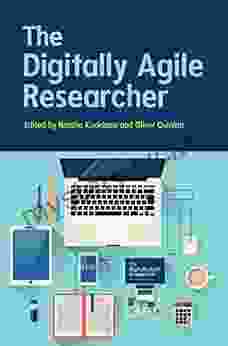
 John Green
John GreenThe Digitally Agile Researcher in UK Higher Education:...
In the rapidly...

 George Orwell
George OrwellZinc: Sources And Significance To Human Health
Zinc, an essential trace mineral, plays a...
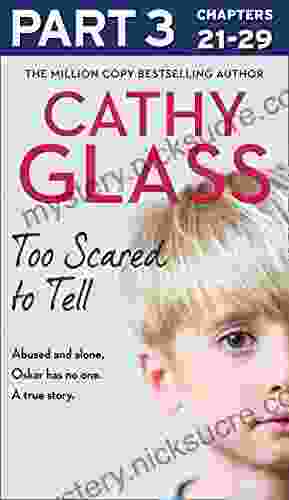
 Mario Simmons
Mario SimmonsToo Scared to Tell: A Harrowing and Thought-Provoking...
In the realm...
4.5 out of 5
| Language | : | English |
| File size | : | 3222 KB |
| Text-to-Speech | : | Enabled |
| Screen Reader | : | Supported |
| Enhanced typesetting | : | Enabled |
| Word Wise | : | Enabled |
| Print length | : | 185 pages |


